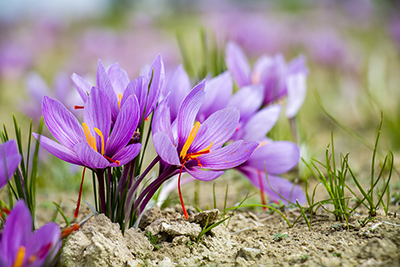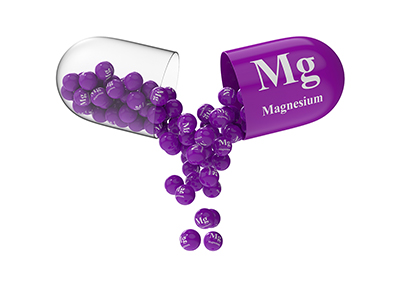Natural Treatments for Sleep Disorder
So much of our functioning relies on proper sleep. Reduced sleep can impair the ability to perform daily activities, impact cognition and mood, and affect motor skills. It can also affect proper decision-making and increase the risk for heart disease and obesity. Many conditions coexist with sleep issues; however, organic causes include insomnia, sleep apnea, restless legs syndrome, acid reflux, and other sleep-wake disorders.[1]
More commonly, insomnia or trouble with sleep appear as symptoms of stress, anxiety, depression, thyroid disorders, adrenal fatigue, or hormonal imbalances. Mainstream medicine evaluates sleep disorders through a sleep study and blood work to determine if organic causes may be a contributor. To improve the ability to fall asleep and stay asleep, certain medications may be prescribed: for example, benzodiazepines, selective serotonin reuptake inhibitors (SSRIs), and antihistamines are common sleep medications.[2] Although they may give short-term relief, they are not a long-term solution: These medications come with side effects such as drowsiness or impaired mental functioning, and they have a high risk of dependency. Supplements and herbal medicines are becoming readily available and utilized as an alternative.
Natural Alternatives
Fortunately, naturopathic medicine can offer alternatives and help discover the root causes of insomnia. These are beneficial, as they may work on treating the root causes like anxiety, depression, chronic pain, cortisol (adrenal) dysfunction, and thyroid disorders.
Lifestyle: Melatonin
Melatonin is a naturally produced molecule in the body. Due to stress, caffeine, shift work, or poor lifestyle, our circadian rhythms can produce too little melatonin. This is the most common alternative to sleep aids. It is most helpful in initiating sleep but can also improve sleep quality as seen in improvements in the Pittsburgh Sleep Quality Index (PSQI).[3] Not only is melatonin helpful in the general population, but it can also aid in improving sleep in different populations such as those with traumatic brain injury, epilepsy, or acid reflux.[4], [5] Research has mostly used a dose of 0.5–3 mg in patients with delayed-onset sleep disorders or primary insomnia, 1 hour before bedtime.[6]
 Depression: Saffron
Depression: Saffron
Saffron (Crocus sativus) was shown to be helpful in cases of depression. When sleep disorders or insomnia are due to depression, saffron can be helpful as an adjunct and possibly an alternative to antidepressant medications such as SSRIs. A study found that the use of 28 mg/d of saffron significantly improved anxiety, depression, and stress-related symptoms like sleep issues according to the PSQI.[7] Other research has duplicated these effects, but at an even lower dose of 15 mg of saffron in 60 individuals over a 6‑week period.[8]
 Muscoskeletal: Magnesium
Muscoskeletal: Magnesium
Magnesium can help in a variety of cases, especially when there is a musculoskeletal cause at play like chronic pain, fibromyalgia, or restless legs syndrome. A study using 5 mg of melatonin and 225 mg of magnesium 1 hour before bedtime for 8 weeks led to parameters that indicated a more restful sleep.[9] This was seen in the ability to fall asleep, stay asleep, behaviour or alertness the next morning, and drowsiness on waking. Magnesium may be acting on the GABA receptors or others in the hippocampus, which are involved in affective disorders like anxiety and depression.[10] For restless legs syndrome, research shows that a combination of magnesium and vitamin B6 can reduce the severity of symptoms and improve sleep quality. This study used a dose of 40 mg B6 and 250 mg of magnesium oxide.[11] On the note of restless legs syndrome, iron supplementation can also be helpful if patients are also iron-deficient.
Anxiety / Stress: ʟ‑Theanine
If anxiety and stress cause sleep issues, supplements and herbs working on the GABA receptor can be helpful. ʟ‑Theanine, a compound from green tea extract, has been found useful for anxiety and related symptoms like insomnia. A study found that l‑theanine supplementation led to improvement in self-reported sleep quality and other nonclinical measures of insomnia.[12] Another trial found that 200 mg of ʟ‑theanine supplementation led to reduced PSQI scores in sleep latency, sleep disturbance, and use of sleep medication.[13] Reports for anxiety and depression also improved in this group of participants.
Adrenal Fatigue / Thyroid Disorders: Ashwagandha
Ashwagandha is helpful in cases when adrenal fatigue or thyroid disorders are at play, because of its adaptogen properties. Ashwagandha significantly improved sleep in both insomniac and healthy patients.[14] These results were found irrespective of the health and age of participants.
Lifestyle / Chronic Pain: Valerian
Valerian helps with sleep by working similarly to a benzodiazepine with its sedative effect. A review of 16 studies suggested that valerian can aid in both inducing sleep and improving sleep quality, with limited side effects.[15] Valerian may cause drowsiness, so it should not be used if operating heavy machinery. It can also be helpful in cases with chronic pain because of its analgesic (pain-reducing) qualities.
 Lifestyle Factors
Lifestyle Factors
Without basic healthy lifestyle practices, neither medications nor supplements will cause a lasting effect. It is recommended to avoid caffeine after 2 p.m., as it is a stimulant. Also, reducing alcohol and sugar prior to bedtime will maintain blood sugar stability. Getting direct sunlight exposure, eating regularly throughout the day, exercising, and practicing good sleep hygiene can all help regulate the circadian rhythm. The resulting effect of adequate melatonin production at night is higher cortisol during waking hours, which slowly decline throughout the day to allow falling asleep at night.
Conclusion
Sleep issues cause a disruption in functioning and quality of life in many individuals. Whether the sleep issue is related to another disorder or is a primary condition, various supplements and herbs show promise. These alternatives provide an option to sleepless nights and dependence on sleep-medications, which offer only short-term effects. To improve your sleep, start with basic lifestyle strategies as mentioned in this article, then consult an expert such as a naturopathic doctor for supplements or herbal remedies tailored to your needs.
 Dr. Kaitlyn Zorn, HBSc, ND
Dr. Kaitlyn Zorn, HBSc, ND
A Guelph naturopathic doctor who uses a blend of modern science and traditional healing therapies to treat the whole person. Her journey has helped her develop an interest in brain health, pain management, and critical illness relief.
drkaitlynzornnd.wixsite.com
References
[1] Pavlova, M.K., and V. Latreille. “Sleep disorders.” The American Journal of Medicine, Vol. 132, No. 3 (2019): 292–299.
[2] Pavlova and Latreille. op. cit.
[3] Xie, Z., F. Chen, W.A. Li, X. Geng, C. Li, X. Meng, Y. Feng, W. Liu, and F. Yu. “A review of sleep disorders and melatonin.” Neurological Research, Vol. 39, No. 6 (2017): 559–565.
[4] Jain, S.J., P.S. Horn, N. Simakajornboon, D.W. Beebe, K. Holland, A.W. Byars, and T.A. Glauser. “Melatonin improves sleep in children with epilepsy: A randomized, double-blind, crossover study.” Sleep Medicine, Vol. 16, No. 5 (2015): 637–644.
[5] Fatemeh, G., M. Sajjad, R. Niloufar, S. Neda, S. Leila, and M. Khadijeh. “Effect of melatonin supplementation on sleep quality: A systematic review and meta-analysis of randomized controlled trials.” Journal of Neurology, Vol. 269, No. 1 (2022): 205-216.
[6] Xie et al. op. cit.
[7] Kell, G., A. Rao, G. Becaria, P. Clayton, A.M. Inarejos-García, and M. Prodanov. “affron® a novel saffron extract (Crocus sativus L.) improves mood in health adults over 4 weeks in a double-blind, parallel, randomized, placebo-controlled clinical trial.” Complementary Therapies in Medicine, Vol. 33 (2017): 58–64.
[8] Pachikian, B.D., S. Copine, M. Suchareau, and L. Deldicque. “Effects of saffron extract on sleep quality: A randomized double-blind controlled clinical trial.” Nutrients, Vol. 27, No. 13 (2021): 1473.
[9] Rondanelli, M., A. Opizzi, F. Monteferrario, N. Antoniello, R. Manni, and C. Klersy. “The effect of melatonin, magnesium, and zinc on primary insomnia in long-term care facility residents in Italy: A double-blind, placebo-controlled clinical trial.” Journal of the American Geriatrics Society, Vol. 59, No. 1 (2011): 82–90.
[10] Murck, H. “Magnesium and affective disorders.” Nutritional Neuroscience, Vol. 5, No. 6 (2022): 375–389.
[11] Jadidi, A., A.R. Ashtianti, A.K. Hezaveh, and S.M. Aghaepour. “Therapeutic effects of magnesium and vitamin b6 in alleviating the symptoms of restless legs syndrome: A randomized controlled trial.” BMC Complementary Medicine and Therapies, Vol. 31, No. 1 (2022): 1.
[12] Sarris, J., G.J. Byrne, L. Cribb, G. Oliver, J. Murphy, P. Macdonald, S. Nazareth, et al. “ʟ-Theanine in adjunctive treatment of generalized anxiety disorder: A double-blind, randomised, placebo-controlled trial.” Journal of Psychiatric Research, Vol. 110 (2019): 31–37.
[13] Hidese, S., S. Ogawa, M. Ota, I. Ishida, Z. Yasukawa, M. Ozeki, and H. Kunugi. “Effects of ʟ-theanine administration on stress-related symptoms and cognitive functions in healthy adults: A randomized controlled trial.” Nutrients, Vol. 11, No. 10 (2019): 2362.
[14] Langade, D., V. Thakare, S. Kanchi, and S. Kulgane. “Clinical evaluation of the pharmacological impact on ashwagandha root extract on sleep in healthy volunteers and insomnia patients: A double-blind, randomized parallel-group, placebo-controlled study.” Journal of Ethnopharmacology, Vol. 264 (2021): 113276.
[15] Bent, S., A. Padula, D. Moore, M. Patterson, and W. Mehling. “Valerian for sleep: A systematic review and meta-analysis.” The American Journal of Medicine, Vol. 119, No. 12 (2006): 1005–1012.

 Stores
Stores